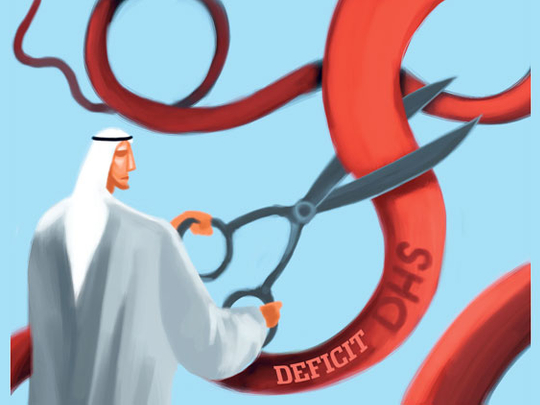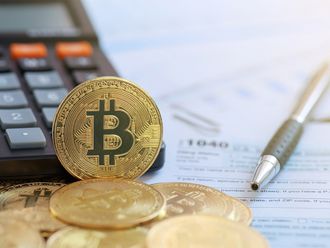
The global financial crisis of 2008 taught governments and financial institutions that it pays to be cautious and remain conservative.
The Dubai Government's Dh32.25 billion budget for 2012 can be seen in this context. It is much smaller in size, compared to the previous budgets. It is, no doubt, conservative.
The budget reflects "continued efforts to raise the efficiency of government spending through increasing productivity and improving economic and social returns", as stated by the government.
Due to the financial crisis the government has streamlined its operations and service delivery.
A deeper look at the overall budgetary allocations and the revenue sources indicates that the government is in a very comfortable position to manage its operations efficiently.
The budget directly applies "directives to focus on a prudent fiscal policy that provides the stimulus necessary to economic growth in the emirate, the completion of the main infrastructure projects, and chart government expenditure in order to consolidate financial sustainability", the government says in summation of its budget announcement.
Savings potential
The budget will be remembered for deficit reduction as well as overall spending cuts. Also, streamlined operations mean government departments can collectively save up to Dh1 billion. The budget also makes provision for 2,400 employment opportunities as the economy grows.
The government is expected to raise Dh30.43 billion in revenues in 2012, of which 60 per cent, or Dh18.33 billion, will come directly from fees and service charges while Dh6.6 billion — 22 per cent — will come from customs duties and tax revenues. Oil is expected to fetch the government 11 per cent or Dh3.5 billion while income from dividends from government-owned companies are expected to bring in Dh2 billion, or 7 per cent of the total.
On the other hand, Dh12.58 billion or 40 per cent of the budget will be spent on salaries and wages of government employees, while 35 per cent will go to operating expenditure. The government will invest Dh5.9 billion in pending development projects while Dh1.3 billion or 4 per cent will be spent on loan and interest repayments.
On sectoral allocations, the infrastructure and economic sector will receive Dh13.22 billion, or 41 per cent, while the services and social development sector is slated to receive Dh9.35 billion, or 29 per cent, of the total outlay.
This means the income from fees and service charges against the government's main service delivery transactions — such as issuance and renewal of visas, trade licences, government permissions, land transactions, health cards, labour cards and other essential services — is enough to pay for all government employees' salaries and benefits as well as development expenditure.
The budget also reflects a long established truth — less dependence on hydrocarbon — which fetches only 11 per cent of the revenue.
Although there is not much scope to raise fees and charges by expanding the tax base, especially at a time when the Arab Spring has forced most regional government's to refrain from increasing costs, the revenue model has every chance of growth.
Income from profits and dividends of the government entities could only go up from the Dh2 billion estimated in the budget. Emirates airline alone paid the Dubai Government a dividend of Dh1.6 billion in April this year. The government owns a number of profitable companies, including Dubai Aluminium, Ducab and Emirates NBD, among others.
Main challenge
However, these are not causes of the government's headaches — that lies elsewhere — especially in the real estate sector where a large number of assets have become liabilities.
Most of them belong to two major government-related entities (GREs), Dubai World and Dubai Holding.
"The rollover of the debts held by Dubai GREs are major causes for concern," Giyas Gokkent, chief economist of the National Bank of Abu Dhabi, says.
It is not clear if the government will seek credit rating next year for bond issuance, that could help it to roll over some of the debts due to mature — estimated to be around Dh55 billion.
Abdul Rahman Al Saleh, Director-General of the Department of Finance, says the budget focuses on expansionary fiscal policy to manage the macro-economy, and enhancing liquidity to stimulate aggregate demand.
"These directives have emphasised the emirate's seriousness in dealing with its borrowing specifically debt that was issued to support the general budget and that was used in developing the infrastructure in the past, through servicing such debt from operational income," he says.
Dubai is gradually "pursuing a set of policies" that promote financial sustainability. These represent a "catalyst for economic growth" which will take "Dubai's public budget to the surplus stage" in the future.
The budget shows the government has a finacial management plan for next year in place, but the Dh55 billion debt repayment due next year will remain a challenege.












